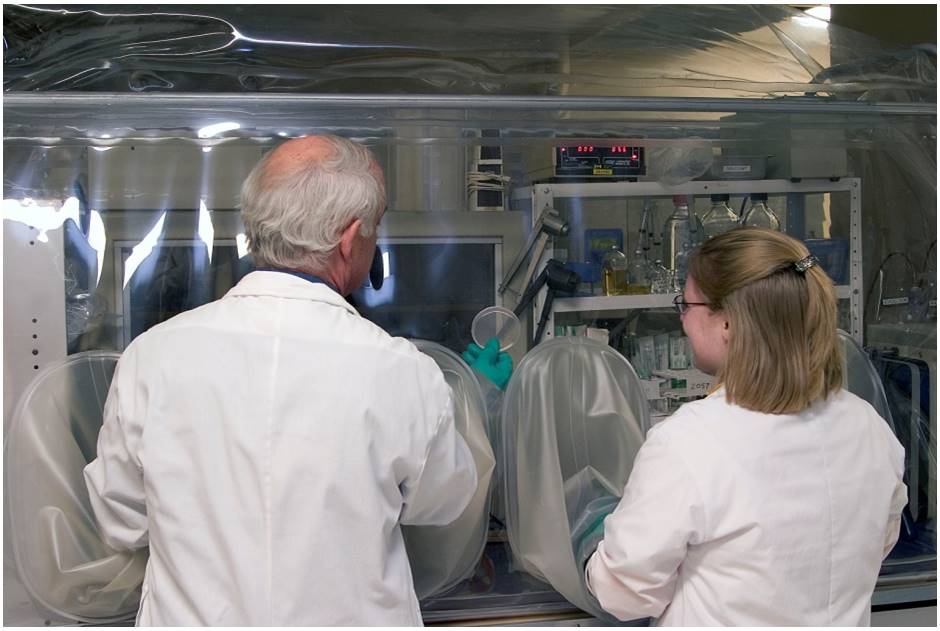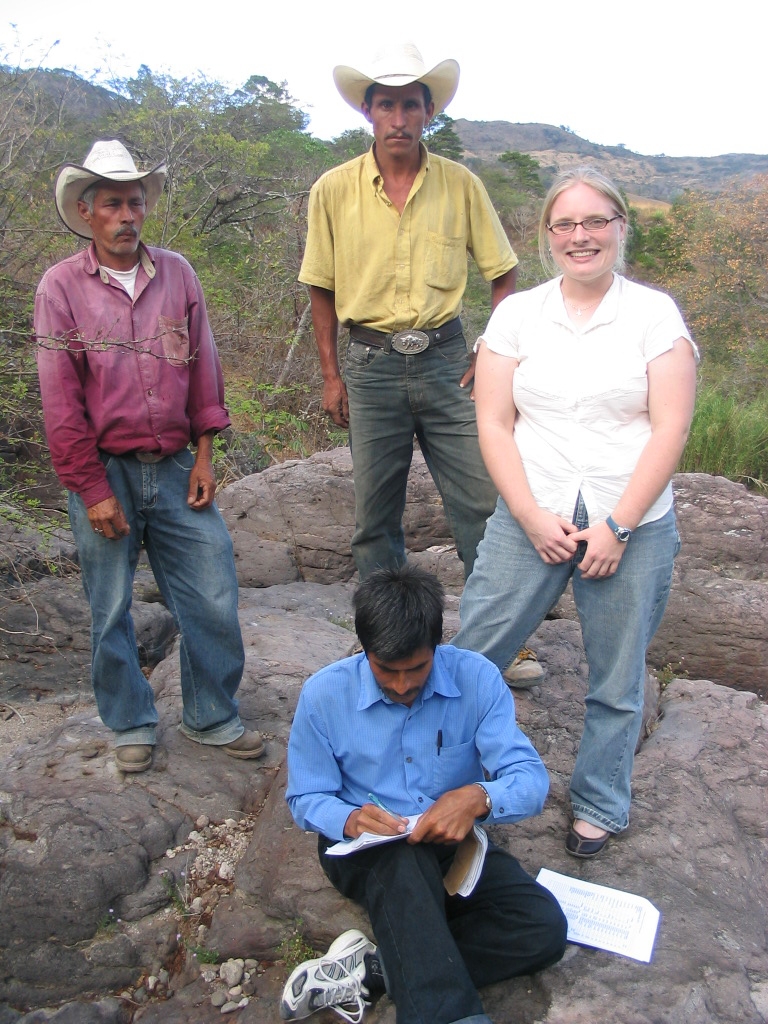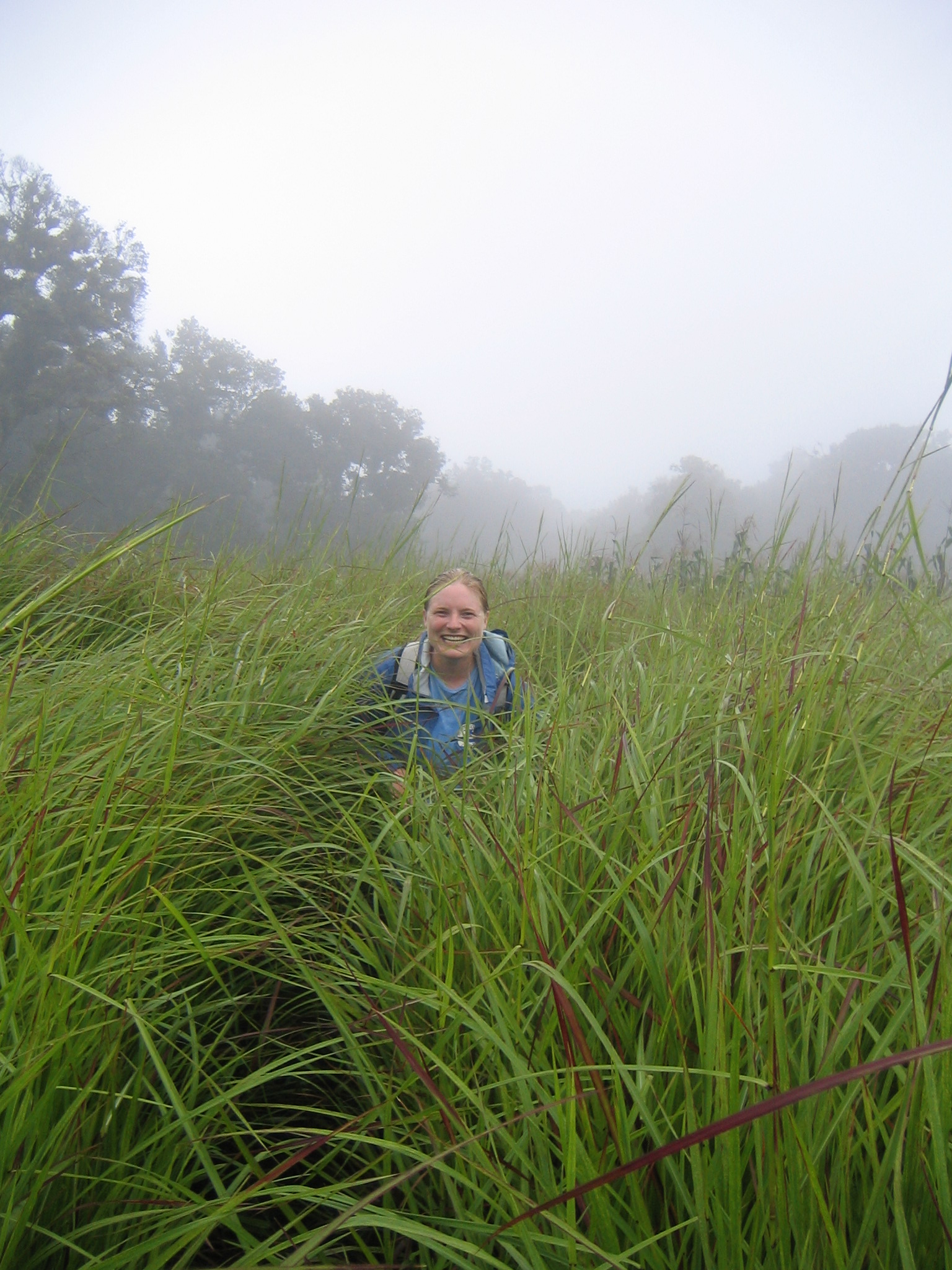Annie Crater
- Email: annie.crater@pcc.edu
- Pronouns: She/Her/Ella
- Office Hours: Varies by Week and Student Input – Check the Zoom Tab in D2L or Email to Schedule an One-on-One Appointment
- Office Location: SE Campus SCOM 214/Virtual Office during Remote Instruction
Academic and Professional Background
I earned my graduate degree from the University of Alaska Fairbanks (UAF) where I studied seasonal changes in the rumen microbial ecosystem of muskoxen. Like all northern ungulates, muskoxen have a large chamber in their digestive tract called the rumen that houses a variety of microorganisms responsible for breaking down the animal’s food for digestion. For my research, I collected samples of the microorganisms from the rumen and performed genome sequencing to determine if the microbial species composition changed seasonally with changes in diet, water intake, behavior, and ambient conditions (i.e., temperatures of -40 degrees Celsius). I also contributed to studies involving caribou, reindeer, polar beers, porcupines, and arctic foxes. During my graduate career, I became passionate about teaching; I taught undergraduate level animal physiology and microbiology courses at UAF and I was the lead instructor for the Alaska Summer Research Academy’s Health Sciences program for high school students.

After earning my graduate degree, I joined the Peace Corps where I served as a Protected Areas Management volunteer in Honduras. I initiated several projects during my service including a large, nationwide elementary environmental education campaign in rural and undeserved communities. I also created biodiversity conservation plans for national and international parks and worked diligently to bring water and sanitation projects to remote towns. During my service, I collaborated on several healthcare initiatives as well – national vaccination campaigns, HIV/AIDS education, and biological vector control (reducing the incidence of diseases such as Chagas, Dengue, Yellow Fever, and Malaria).

After returning from the Peace Corps, I started teaching at Portland Community College. I have taught at SE Campus for over 10 years and I am the lead instructor for Bi 112: Cell Biology as well as Bi 234: Microbiology. Teaching microbiology during the COVID-19 pandemic has been particularly meaningful to me as we face significant challenges with the spread of misinformation and disinformation on SARS-CoV-2 in our society.
Teaching Philosophy
To me, teaching is a dynamic process that requires flexibility on the part of the educator to work within the spectra of information and learning styles of every student to create an equitable learning environment and guide them to the academic benchmarks that they wish to achieve. Teaching is a also a process that requires the learner to be an active participant in their own education. It is crucial to conduct this process through a lens which embodies racial and social justice, cultural competency, equity, diversity, and inclusion.
“Science and everyday life cannot and should not be separated.” ~Rosalind Franklin

